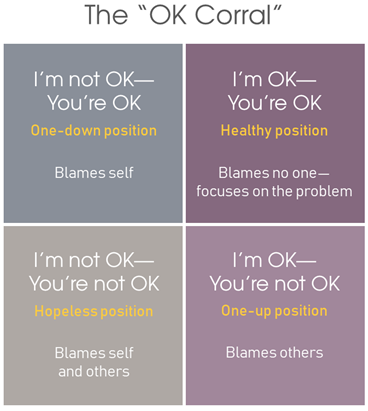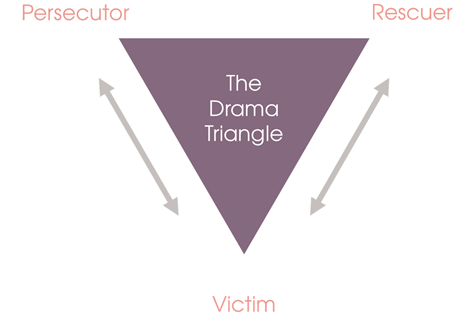engineering-management
Drama Triangle
Based on Eric Berne’s theory of Transactional Analysis and his concept of games, but added to the dialogue the idea that drama and games largely stem from an underlying sense of “not okayness.”
The basic idea is simple. How do you tend to feel about yourself? About others? These two things, together, can be shown as a 2×2 grid. You may tend to “hang out” in one quadrant of the matrix more than others. This is your “life position.” The aim, obviously, is to spend as much of your time in the top right as possible (adapted from Mountain & Davidson, 2016).

If the triangle below represents “drama,” then staying in the position of “I’m OK — You’re OK” is the avoidance of drama and shows a level of maturity.

If there is drama then you are playing one of the roles in th triangle or at least being invited to play the game with a colleague.
If you are a manager, this is definitely a dynamic you should be paying attention to. Are the people considered “rock stars” really just perpetuating drama? Are they Rescuers who surround themselves with Victims? Or are they Persecutors who go in, throw their weight around, take all the credit, and then leave scorched earth behind them? Neither are good or value-adding.
You might think it is most common for an organisation leader to play Persecutor, however, it is more common for the organisation leader to play Victim and surround herself with Rescuers. They will turn Persecutor only when staff fail to sufficiently rescue.
How to deal with drama and games
- Increase your awareness of drama and games
- Change your perceptual position
- Tame your advice monster
- Improve your self-concept
- Cross the transaction
- Respond to the ulterior message
- Confront the game
- Counter with ground rules
- Learn to spot the discount